25 Signs Cats Think You’re Their Mom
Cats may act aloof, but behind those dramatic stares and slow blinks might be something hilariously wholesome—like thinking you’re their actual mom. We’ve listed a few surprisingly sweet signs that your cat’s been seeing you as their one and only parent figure all along without ever needing a paternity test or litter certificate.
They Knead on You Like a Pillow
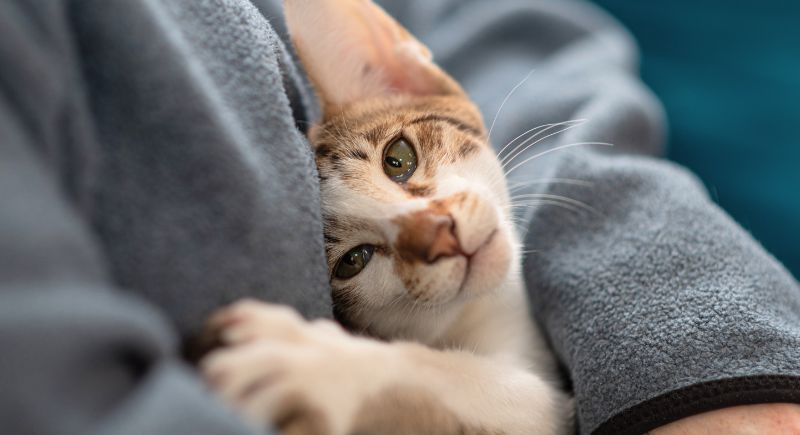
Credit: Getty Images
Kneading is a throwback to kitten days when tiny paws pressed against their mom’s belly for milk. If your cat does this on your stomach or thighs, they’re reliving comfort from babyhood. Bonus points if the claws come out—because only with “mom” can they fully let go without worrying they’ll get swatted.
They Follow You Absolutely Everywhere
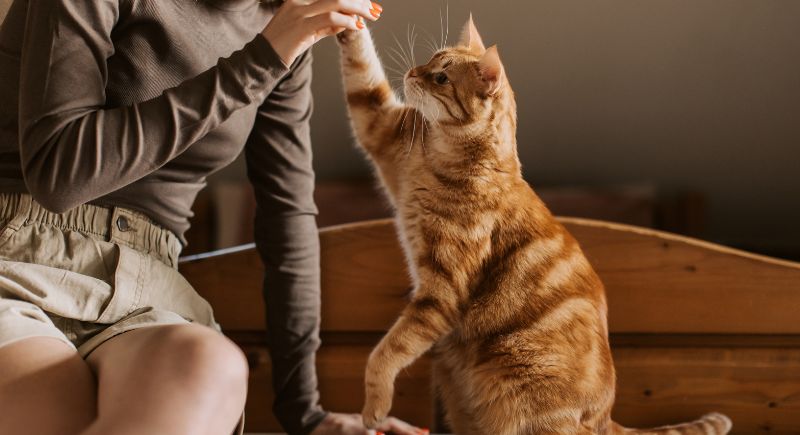
Credit: corelens
Some cats act like shadows with whiskers. They’re always one step behind in the kitchen, bathroom, and laundry room. Kittens trail their mothers for safety, food, and comfort. When adult cats pick one person to follow, trust has hit peak levels.
They Bring You “Gifts”
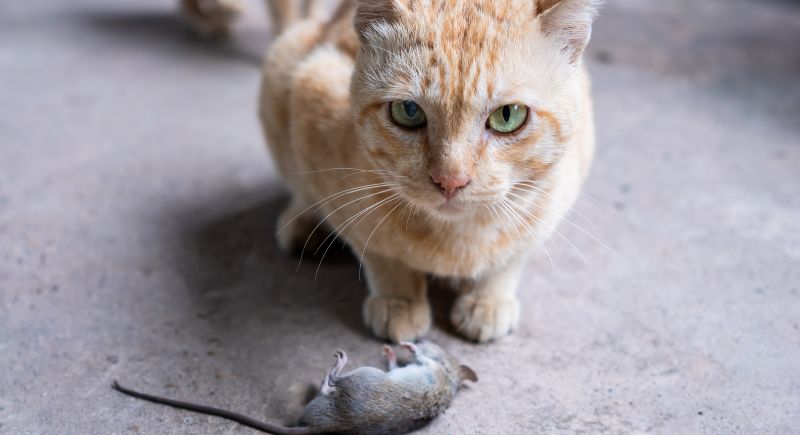
Credit: Getty Images
Cats share their “hunt” with those they care for. Even indoor cats retain this instinct, so a dropped toy mouse means, in cat language, “Look, I caught this for you.” Some even vocalize while carrying their prize around.
They Groom Your Hair or Lick Your Skin
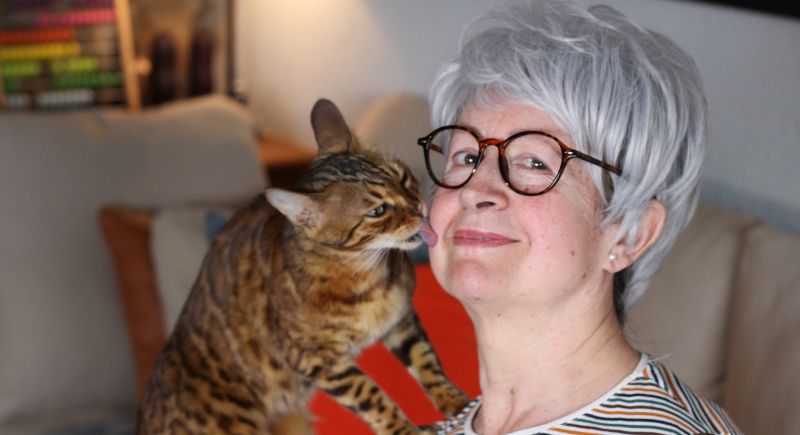
Credit: Getty Images
When a cat licks your hand or face or gives your scalp a full cleaning, it’s called social grooming or allogrooming. They use this to bond in their colonies, and kittens get washed regularly by their mothers. If they start grooming you, it’s their way of saying you’re family.
They Slow Blink at You Like You’re Royalty
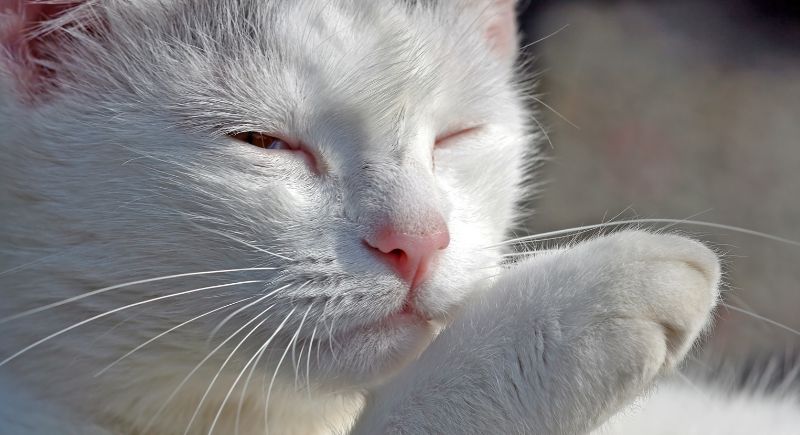
Credit: Getty Images
A slow blink from a cat is one of the most affectionate gestures in the feline playbook. When they give you that lazy eye-close, it means they feel completely safe around you. You can try it back, too, and if your cat returns the blink, you’re basically fluent in cat love language.
They Sleep on or Beside You
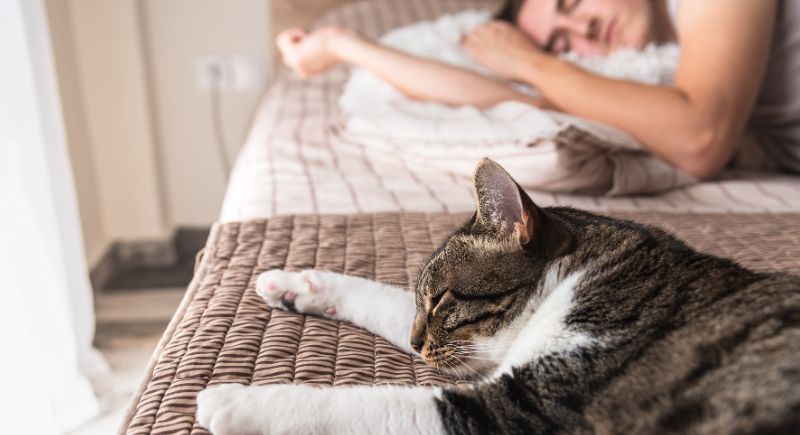
Credit: Getty Images
Cats are picky sleepers. They seek warmth, but more importantly, they seek safety. Curling up next to you—or better yet, on top of your chest or neck—is also something they do with their mothers for comfort and protection. Sleeping in close contact helps regulate temperature and heartbeat rhythms.
They React to Your Emotions
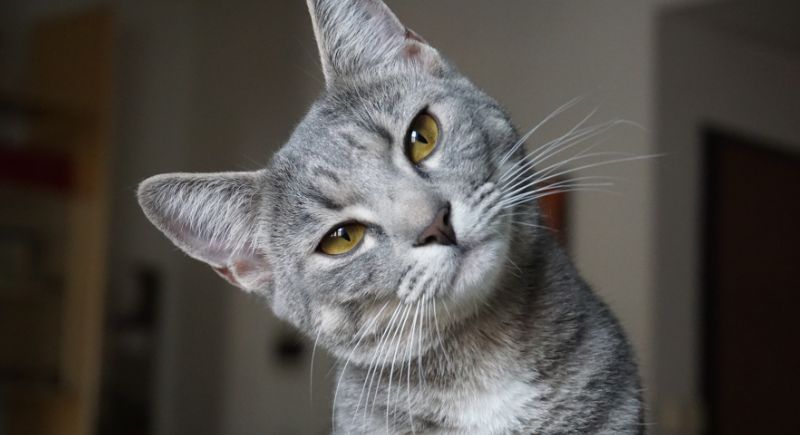
Credit: pixabay
Studies show cats read human facial expressions and vocal tones. If yours seems extra clingy when you’re sad or back off when you’re annoyed, it’s picking up on your emotional cues. This mirrors how kittens relied on their mothers’ moods to know when it was safe or time to hide.
They Purr Loudly When Near You
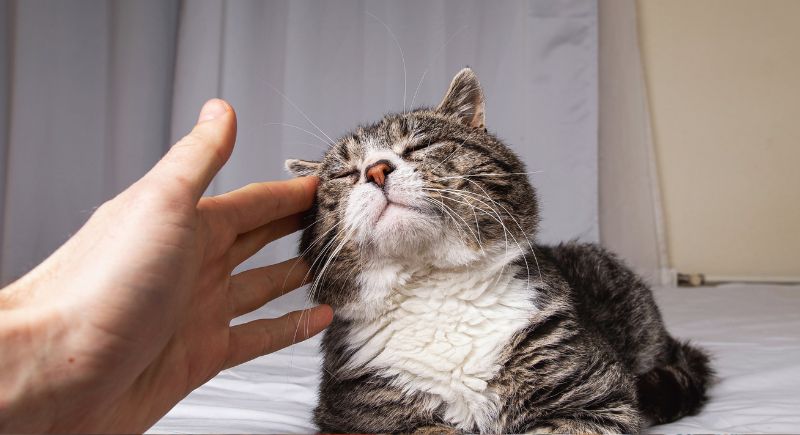
Credit: Getty Images
Purring doesn’t always mean happiness. It’s also a comfort mechanism cats develop during kittenhood, often used while nursing. If your cat curls next to you and starts rumbling like a tiny engine, it may be a throwback to bonding with their mother.
They “Nurse” on Blankets Near You
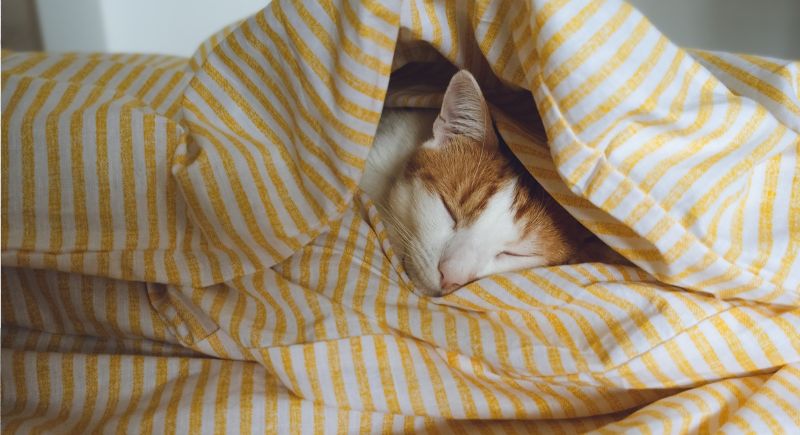
Credit: Canva
Suckling on blankets, soft clothing, or even earlobes (yes, that happens) is a leftover behavior from weaning. It often appears in cats who are separated too early from their mom or see you as a replacement. It’s weird, yes—but also sweet.
They Present Their Belly (and Trust You Not to Betray It)
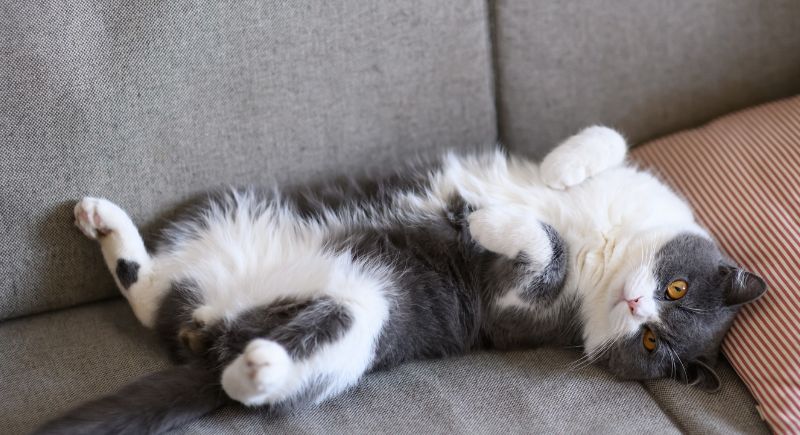
Credit: Getty Images
When a cat flops over and flashes the belly, it’s not always an invitation to touch—but it is always a sign of deep trust. That soft underbelly is a vulnerable area; most cats don’t expose it unless they feel entirely secure. Plus, if they don’t bite when you pet them, that’s next-level trust.
They Act Jealous of Other Pets or People
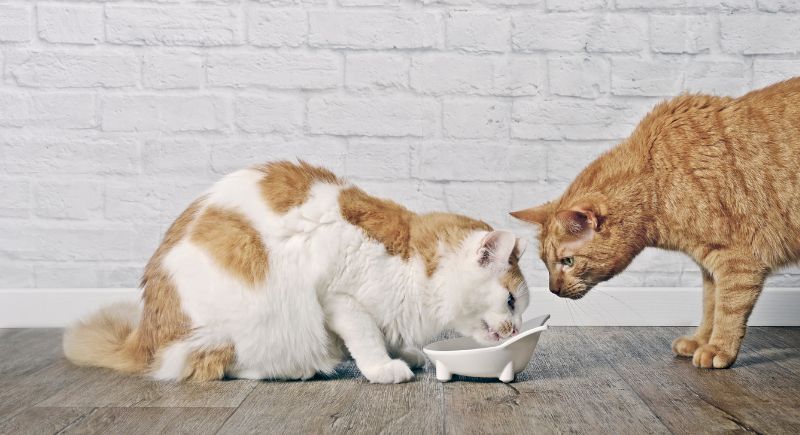
Credit: Getty Images
Cats aren’t big on sharing attention—especially not with whoever they’ve bonded to most. If yours inserts itself between you and another pet or blocks your laptop, that’s classic maternal clinginess. It mirrors how kittens compete for a mother’s attention.
They Get Anxious When You Leave
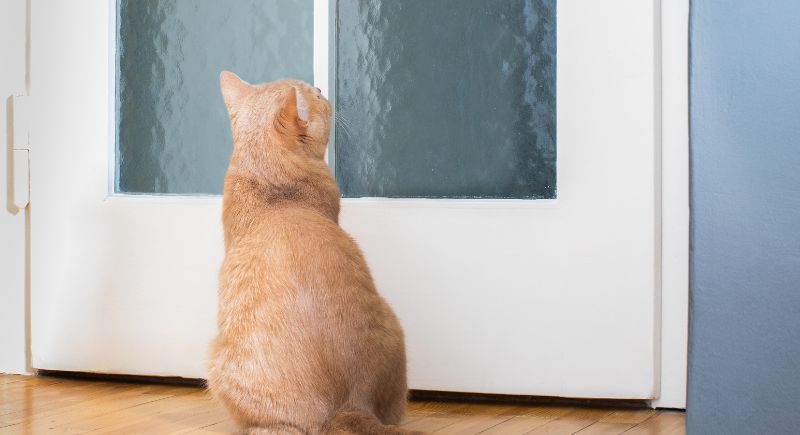
Credit: Damedeeso
Some cats handle goodbyes like pros. Others cry at the door, hide, or refuse to eat. That’s separation anxiety—and it’s more common in cats than most people think. It means you’ve taken on the role of emotional anchor—their trusted human mom, keeper of treats, and protector of their universe.
They Bring You to Their Favorite Spots
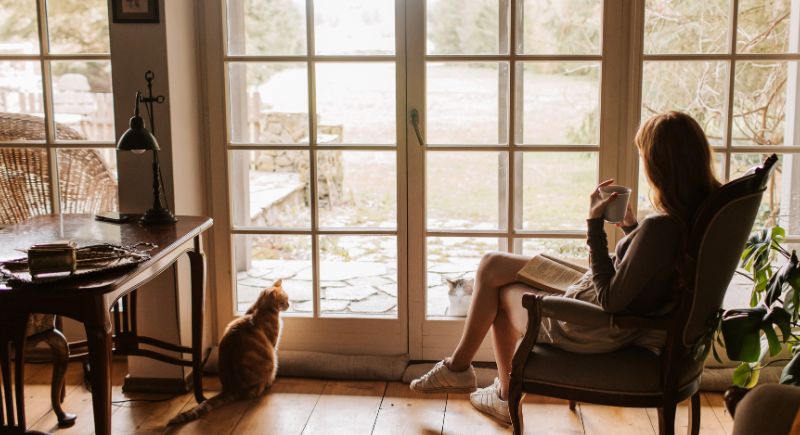
Credit: corelens
Cats often lead their bonded person to their favorite nap spot, window perch, or toy stash. It’s a behavior kittens do with those they trust—showing off places they like or seeking safety. When they keep guiding you around like a four-legged tour guide, it’s an invitation into their world.
They Mimic Your Routines
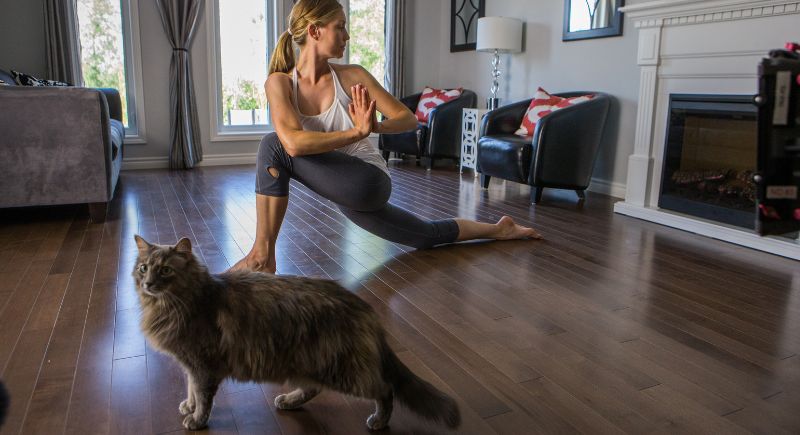
Credit: Getty Images
When your cat starts stretching when you stretch, lounging when you lounge, or snoozing as you power down for the night, they’re not being lazy copycats but bonding. Kittens naturally sync their behavior with their mothers for security, and adult cats often continue this with their favorite humans.
They Demand to Be Carried or Held Like a Baby
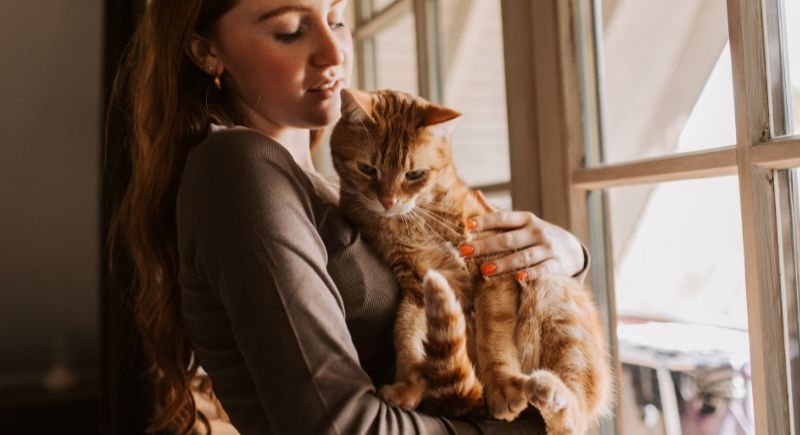
Credit: corelens
Some cats insist on being picked up and held like squishy infants. They’ll paw at your leg or stretch their front paws up like toddlers. This behavior often starts in kittens carried by their mothers and translates into craving close, full-body contact later.